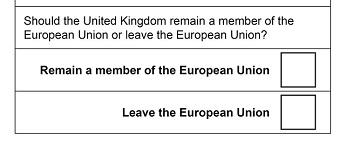


Paul instructed his readers to pray for the authoritarian leaders of his day, so that the ‘soft powers’ of the gospel–love, truth and justice–could prevail.

Hope perseveres in the face of hardship, recognizes that God in his grace wants to preserve this world and protect it from its self-destructive powers.

First and foremost, a Christian vote is a vote for others.

As Americans go to the voting booths to choose the candidate they hate the least, we in Europe need to brace ourselves for the outcomes.

There is a place for patriotism and healthy national pride. But surely we should get nervous when British exceptionalism and nationalistic fervour get wrapped up in religious language.

Putting to one side the hermeneutical questions around the identification of the EU with Bablyon, what is clear is that the demonization of the “other” inspires hatred not love.

If the current situation has encouraged mission agencies in Europe to ask questions again about their core business and the values of service, radical availability, and sacrifice, then God will continue to be glorified, even in the midst of political turmoil and uncertainty.

I will never be more influential than when I succeed in helping people be reconciled with each other, with their situation, and ultimately with God.

How will we use the gifts God has given to us? What will be remembered for in the way that we have used these gifts?

The daughter of a vicar, she attends a local Anglican church regularly. She supported gay marriage and does not like to speak about her faith in public.

Juncker speaks at EU Parliament plenary session in Brussels. Verhofstadt: “Negativism is the most shocking thing of what has happened in Britain, not the choice of the people.”

After the referendum, the tensions run high. The Evangelical Alliance United Kingdom calls to follow the example of Jesus and practise “generosity and love.”

“We pray for leaders across Europe, and around the world, as they face this dramatic change”, the Anglican Archbishop of Canterbury writes after the EU referendum.

Narrow outcome (difference of 1.3 million votes) opens a political crisis in the UK and an unpredictable scenario in other countries of the European Union. PM David Cameron announces he will step down.

The European Evangelical Alliance calls to pray for the referendum.

The danger of deciding on the basis of narrow personal or national self-interest is to overlook a whole range of possible consequences to the other parties in this set of relationships – which could then rebound on us.

On Thursday 23 June, the citizens of the UK will decide if they remain in the European Union. 7 Christians organisations share a joint prayer. Several authors have published biblical perspectives at Evangelical Focus.

Viewing the issues of the referendum debate through the lens of what theologians call “salvation history”, the mission of God to redeem His creation, throws new light on them and provides vital perspective to help us make our decision on the 23 June.

Sir Fred Catherwood: “Patriotism gives to Caesar what is Caesar’s and to God what is God’s. But in the end nationalism wants total allegiance, because it is more than politics. It is religion.”

Christians in Politics launch #DisagreeWell. Believers should be able to talk, listen to each other, and join political parties as well as other orgnisations in society.

“Christians should be prepared to argue for positions which advance the international common good even at the apparent expense of their national interests”, Dr Jonathan Chaplin said in Amsterdam (May 8-9).

There are Christians in both camps, and good reasons for both positions, but it is almost impossible to separate fact from propaganda. This article aims to articulate a biblical framework within which we might start to ask the right questions.

Whatever happens in June, Britain will still be part of Europe; we are not voting for the English Channel to become an ocean.

While European nations, like ourselves, have largely abandoned Christianity as a guiding force, nevertheless, we have a great deal in common in terms of values. An opinion article sent by one of our readers.

Director of Jubilee Centre Jonathan Tame believes the main themes of the campaign should be analysed from a relational point of view.

Las opiniones vertidas por nuestros colaboradores se realizan a nivel personal, pudiendo coincidir o no con la postura de la dirección de Protestante Digital.